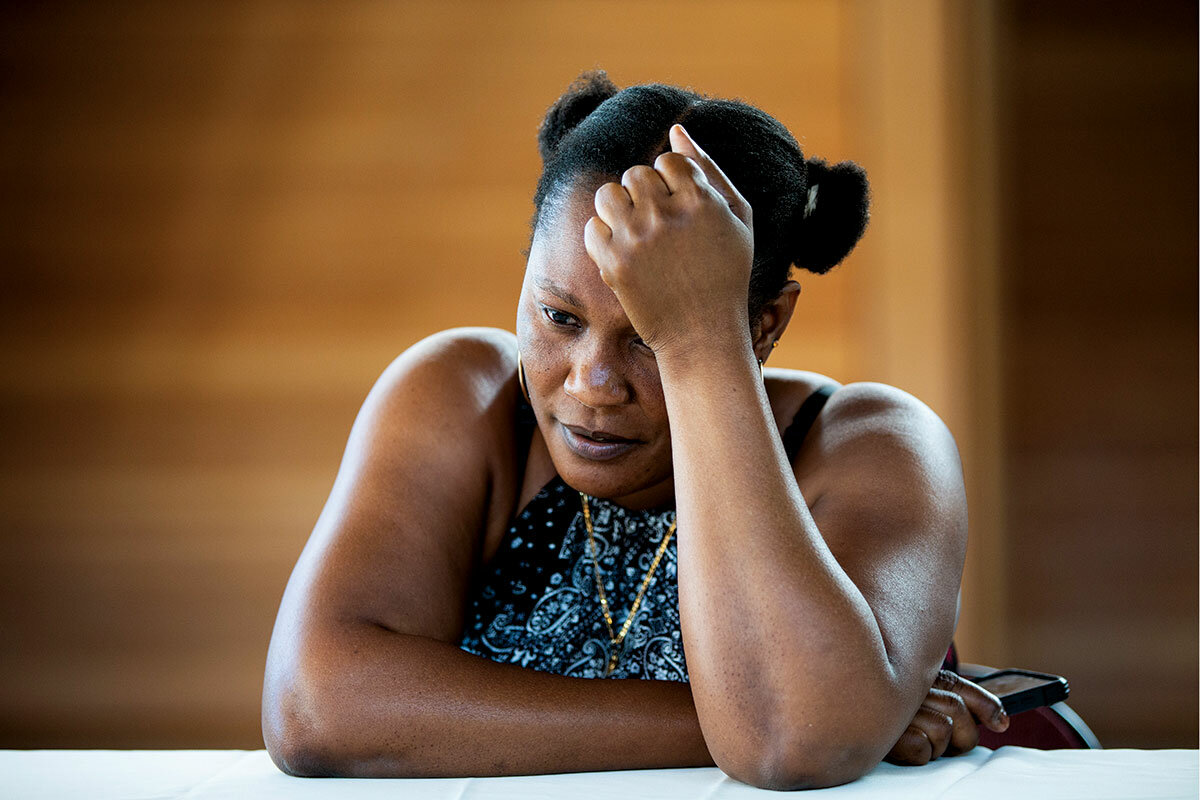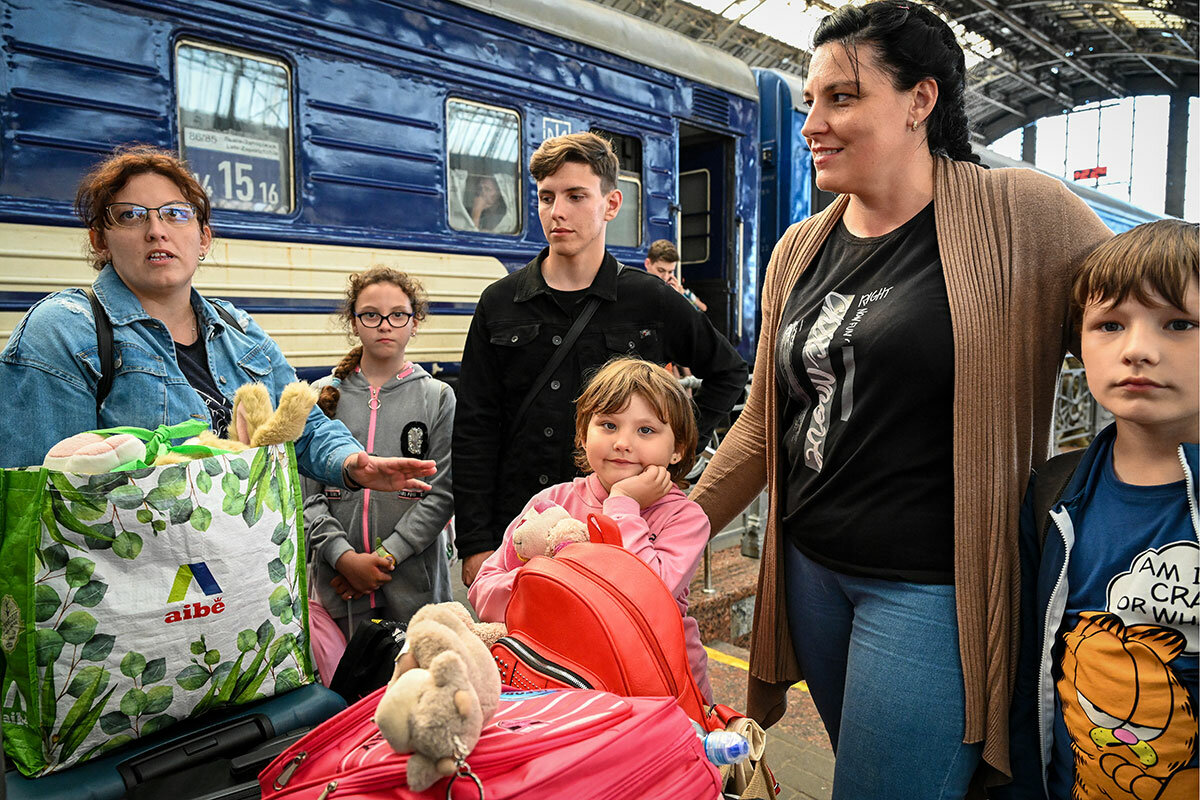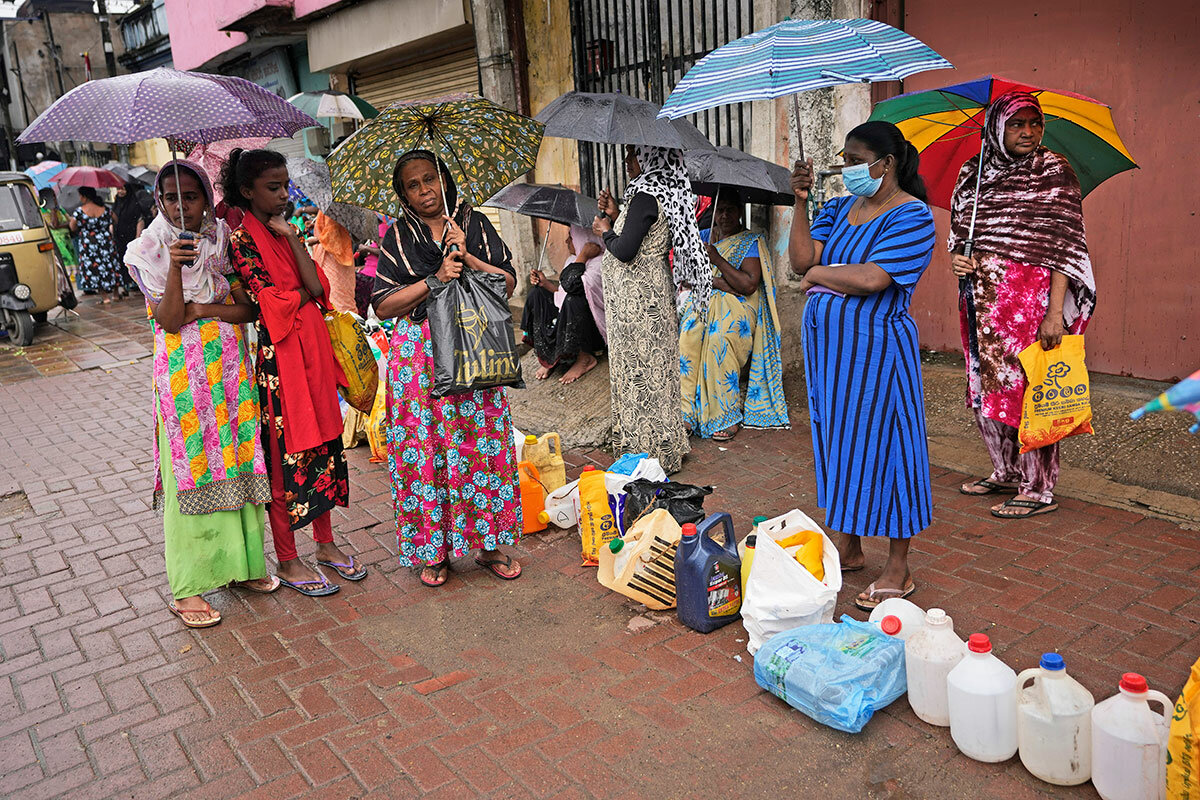A city in Maine known for embracing immigrants is straining to handle the most recent surge. It is trying to balance two competing interests: compassion and limited resources.
Monitor Daily Podcast
- Follow us:
- Apple Podcasts
- Spotify
- RSS Feed
- Download
 Linda Feldmann
Linda Feldmann
As a Northeast native, I couldn’t resist this week’s Boston Globe travel feature: “40 tiny, perfect things about summer in New England.” Now I’m ready to add one of my own – hiking inn to inn in Vermont’s Mad River Valley.
It doesn’t qualify as backpacking or even “glamping.” Think going on a cruise, except your legs are the engine. Luggage is transported ahead to the next destination. The organizer of this excursion, a young man named Peter Mandych, set the itinerary based on our group’s wishes – about 8 miles of trail hiking a day.
Beautiful scenery was a given: the green mountains, the cows in the pasture, the crisp light, a blessed relief from the Washington swamp. Even the day it rained was lovely. But another highlight was hearing the stories of the people (and animals) we met. There was the older couple running their daughter’s newly purchased bed-and-breakfast while she prepared for the birth of her first child. Her dad was a retired McDonald’s executive, who happily answered all our questions about the world’s biggest fast-food chain.
There was the family of six from Philadelphia who had pulled up stakes during the pandemic and bought an inn, with attached farm, to fulfill the mom’s long-held dream. Pickles, their 13-year-old Bergamasco sheepdog, melted my heart, I say as a confirmed cat person.
Then there was Mr. Mandych himself, another pandemic refugee, who had fled his job as a lawyer in Boston to start a business, Country Mile Vermont, organizing hiking and ski tours. We shared a deep interest in Ukraine, his grandfather’s birthplace. He had no interest in taking up arms – “I’d be of no use over there” – but he recently organized a fundraising run to benefit Ukraine’s armed forces.
I was also struck by the numerous Ukrainian flags, flying from houses and lining the streets of small-town Vermont – another tiny, perfect thing about New England this summer.









